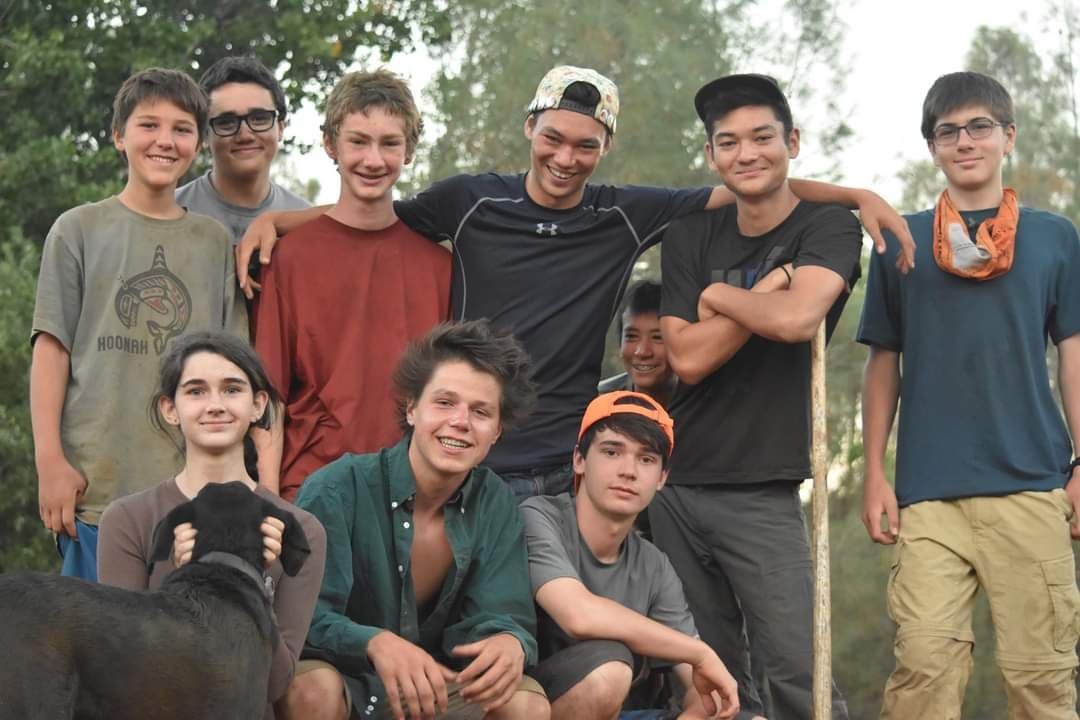Greatest Generation 2.0 – Column by Brian D. King
When I was in high school in the mid-1970s, back before state standards, standardized tests, and Common Core Curriculum, my best teachers, most of them combat veterans (vets), were from the greatest generation. There was just something missing with the other teachers. I started on a quest to identify what the vets possessed to make them great teachers.
The shop teachers, all vets, hung out in the metal shop during lunch. Mr. Allen kept the shop open for us to work on our projects, so I was able to enjoy listening to them. I learned how to get them to talk about their youth, military experience, and why they wanted to be teachers.
I discovered that they all loved their calling, and took joy in the accomplishments of their students, but there was something more. They possessed core character qualities that drew me in, and eventually my dream of becoming a veterinarian, or gunsmith, was losing out to that of being a teacher. These men, all veterans of war, were the first I wanted to emulate as a future teacher. I wanted to imitate how they were raised, and educated. My vision was to build a school that produced the next Greatest Generation.
My interest in the success of teaching well was piqued, so I chose to study prosperous people born in the 1920s, and earlier, and started to reverse engineer their lives. I studied statesmen, framers and founders of our country, and industry leaders back to the early 1600s.
I read biographies, autobiographies, and personal correspondence, which often included letters exchanged with the women in their lives (wives, mothers, sisters, and daughters). I read the books these formative men read, and the biographies of those authors. I studied others who these men emulated, and those who mentored those men. I parsed out how they were taught and raised, leading them to become joyful, prosperous people, and great leaders. I also studied the works of those that were on the same mission as me, and throughout my years of study, discovered the most regularly referenced works were that of the Holy Bible, Plato’s Republic, and Socrates’ Ethics.
By 2001, I had been teaching for 20 years in public secondary, and public-private post-secondary schools, in many fields. During breaks in school years, my time was filled working in the fields that I taught. The most successful teachers have intimate knowledge from actually doing the work they instruct others to do.
During those 20 years, parents would share a reoccurring lament: their child had lost interest in learning. The kids had started out so curious, wanting to know how things worked, and eager to try something new. But as they progressed in school, they lost any drive, or thirst, to learn. All parents had the same question. “Why?”
My focus was not what schools were doing wrong, but how we could build a pedagogy, an education process which would emulate how George Washington, George Westinghouse, Dwight D. Eisenhower, and others were raised, and educated. Having also studied the early life, and education, of some noteworthy miserable curmudgeons like Arthur Schopenhauer, I wished to avoid pitfalls that produced such characters.
All my studies showed the most important element amongst these well-rounded, joyful, prosperous men was their dedication to placing others before themselves, and gave me an overview of common habits, routines, and prominent facets in building great men of substance. They regularly focused their energies into mastering skills and applying principles in areas of:
- Faith
- Family
- Vocational/Avocation
- Fiscal responsibility
- Personal health and fitness
Furthermore, these successful men adhered to the following routines, and habits, throughout the entirety of their lives. They:
- Engaged in physical exercise at the start of each day.
- Gave gratitude at the start of each day.
- Meditated at the start of each day.
- Wrote in a journal every day.
- Did something just to make someone else happy every day, without expecting anything in return.
- Spent time in nature, continued a deep connection to nature, and often wrote about their experiences.
- Expressed themselves through music, art, or literature.
- Learned something new, to a point of mastery.
- Spent time in unstructured free-play, or exploration.
- Studied what they were passionate about.
- Read for pleasure, including the Bible.
- Engaged in open discussion, and shared their reflection of the day.
- Had a daily cycle of challenges and successes.
- Set short term goals, and reviewed their mid-range, and long-range goals daily.
- Were responsible for daily chores.
While teaching the mandated state curriculum in public schools from 1980 to 2001, following the standard model of classroom routine, I would consistently hear my students express a desire to go home, and questions as to why they even had to learn whatever was being instructed.
Over the past 20 years of running a private school focused on a new paradigm in education, one that follows the model of education and learning that produced joyful, prosperous men, there has been a big shift in how students respond to their day. Often I hear, “Really? Is it time to go? The day went fast!” Couple this attitude with intense desires to learn new skills, and the laughter and smiles from students throughout the day, and I am given great assurance that this model is on the right track. The best reward has been watching the students become prosperous adults.
These past 20 years, serving students in our innovative school model has never felt like the drudgery of going to work that was there when teaching in public schools. How amazing would it feel to hear your child come home, and say, “It doesn’t feel like school, it feels like hanging out with a large, cool family doing really cool stuff … I am learning how I best learn, and what I am learning is relevant to my needs and my future.”
In future articles of my column “Greatest Generation 2.0” published exclusively by Kootenai Journal, I will go deeper into the everyday running of an innovative and unorthodox education model, and how the life habits and facets, exemplified by great men in history, are implemented with students today.







